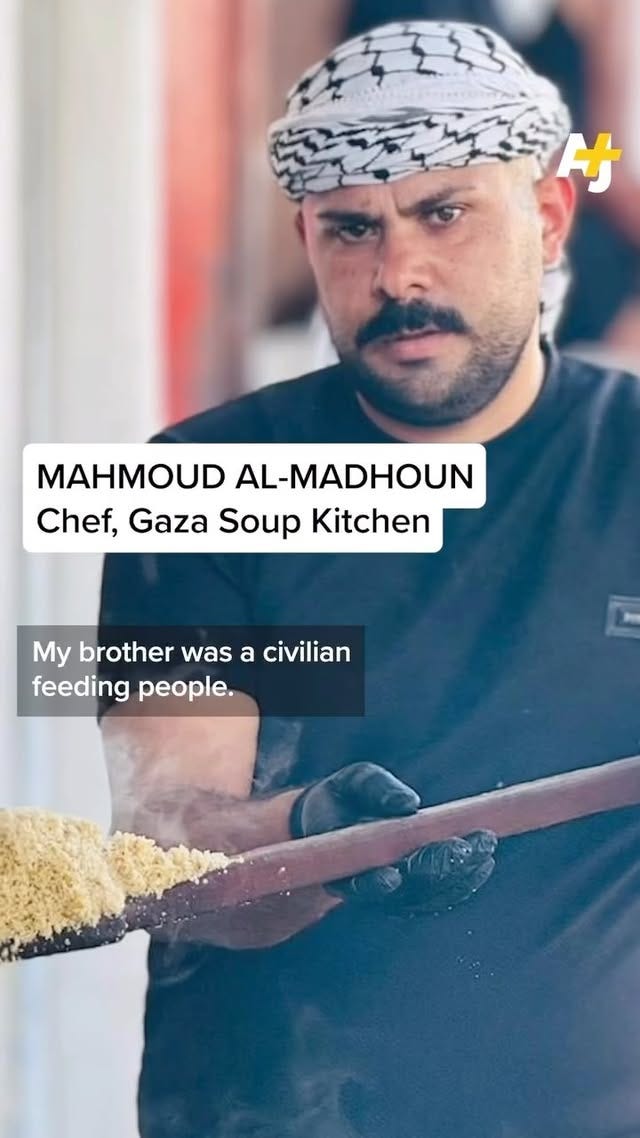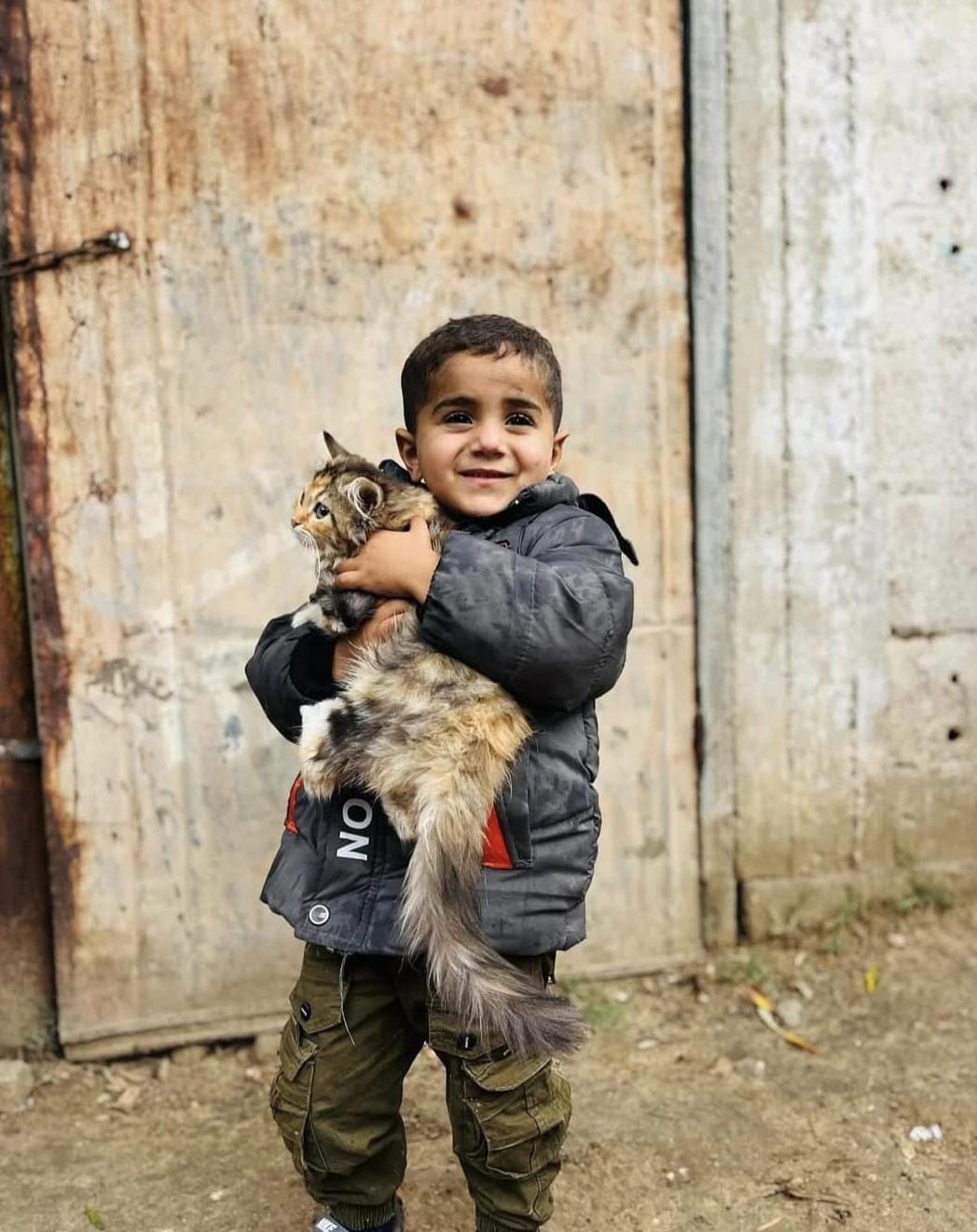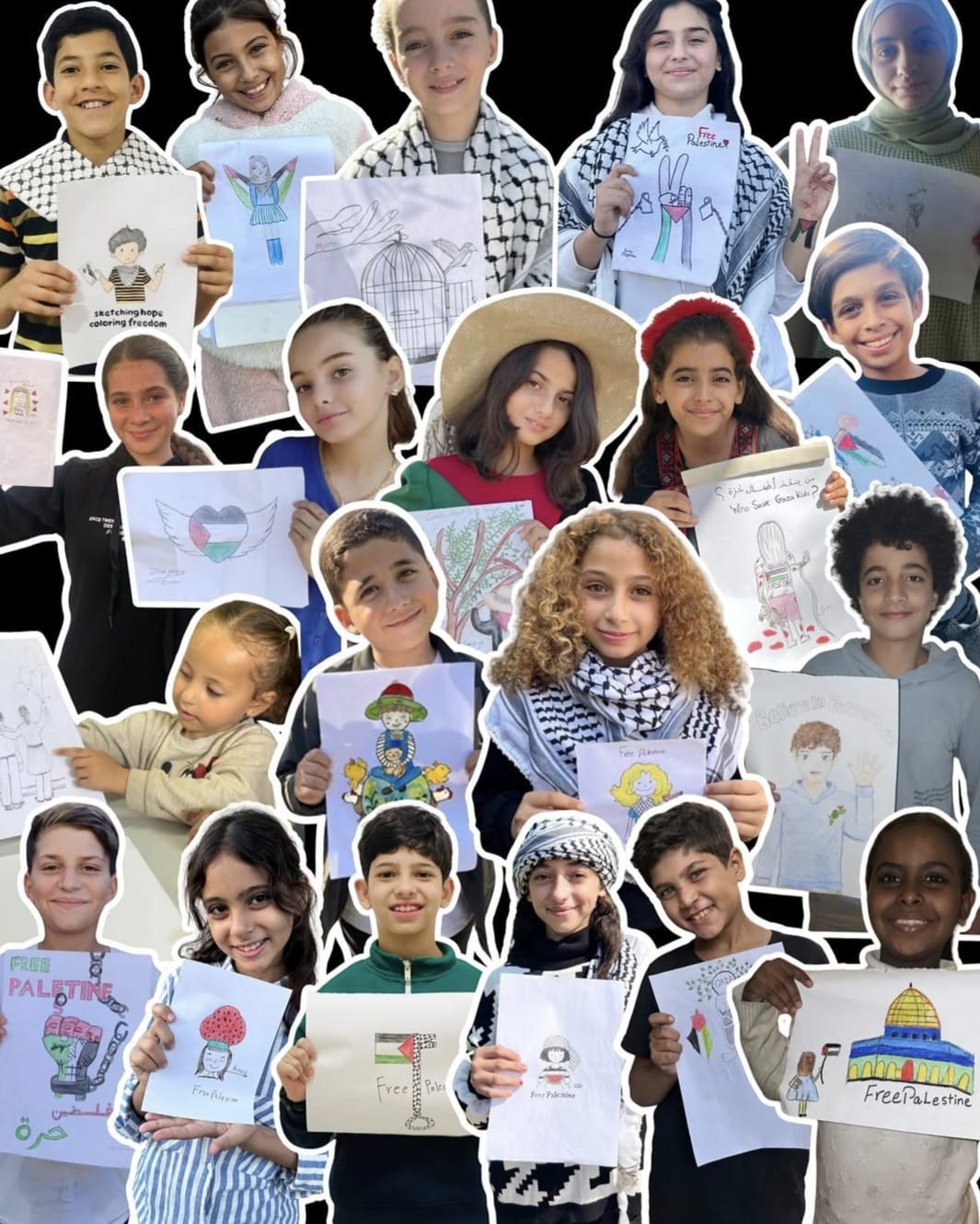Gaza’s kids: forced to grow up despite innocence
The resilience of children growing up in war is recorded in real time
A young girl in Gaza stands defiantly, refusing to be broken by the destruction around her. Photo Source: Unicef
May, nearly seven months into the persisting genocide in Gaza, baby Leen’s mother shared a photo of her daughter beaming with joy as she played with a simple but bright alphabet puzzle . The caption read, "Something made her day in this war."
A month later, Leen’s mother began posting videos of the two-year-old learning English word by word.
Then, in two months, the toddler was speaking full sentences in a language foreign to her.
Her emotions, facial expressions, and body language always aligned with her words, making it seem as if a mini-adult had emerged in just a matter of months.
With her mother’s support, Leen eventually launched a cooking channel on social media that gained a global audience, helping to sustain her family through their most challenging days.
Leen is not the only child forced to grow up and is drawn to humanise the Gazan quest for survival.
On November 30, 2024, Mahmoud Almadhoun, chef and father of seven, founder of the Gaza Soup Kitchen, was brutally murdered by a targeted Israeli drone while delivering food to Kamal Adwan Hospital. This was six months after he founded the soup kitchen, a community-based initiative created to provide daily meals to besieged and starving Gazans. With the help of his brother Hani, based in Virginia, his family raised funds online to support his work. Almadhoun managed to open a school during the six months of service before his death. Almadhoun serves as an ongoing example to both adults and children at the soup kitchen, who continue to show up daily to serve their people.
A Report outlining the circumstances of the murder of Mahmoud Almadhoun, Founder of the Gaza Soup Kitchen. Video Credit: Sundal Roy
One child in particular, fondly referred to as “Hamoudi,” stood out to me.
Hamoudi, not more than four years old, would appear at the kitchen every morning with a cat or cats that he had rescued and proceed to take care of the animals.
He would also assist with chores at the soup kitchen and comfort his younger sister Maria, who was terrified of the drones flying overhead.
The little boy does this day after day with a smile on his face, and his attitude is so infectious that he soon becomes the mascot for the soup kitchen.
Amid the ceasefire and after their return to the north, I managed to make contact with Hamoudi’s father, Muhammad Khalaf.
Hamoudi holding one of the cats that he rescues and takes care of. Photo credit: Hani Almadhoun
His workplace had been burned down over a year ago, and he and his family had recently returned to the north to find their home partially damaged.
He spoke of having no work to make ends meet, of suffering from an incurable nerve disease that caused him severe difficulty in his everyday life, of the lack of medical care available to him, and of his fight to survive despite his difficulties so that he could be there for his family.
“Praise be to God, but the war is not over yet. I hope that the occupation will not betray them after obtaining their prisoners. Life is difficult in the North, the roads are destroyed, there is no goods. The occupation prevents the entry of goods. I suffer from neurofibromatosis type 1. It cannot be treated and is caused by a genetic error, I suffer from skin and nerve problems because of it, I have osteoarthritis in the knee because of it.When itching.When sneezing. If a pencil falls on my fingers, I feel pain as if it were a hammer. “
Khalaf spoke sadly of medical care being unavailable to him and a lack of food or aid for 22 days after the ceasefire.
Despite his chronic illness and the difficulty of daily life, he expresses hope for the future and his beloved children, Hamoud and Maria.
Every day, when I scroll on social media and meet with familiar smiles, surrounded by harrowing living conditions, I often wonder: How could children enduring hunger, cold, and constant insecurity—forced into deplorable conditions alongside younger siblings and severely stressed parents—still shine so brilliantly?
I soon discovered more extraordinary children—young chefs, mini journalists, little engineers, and more.
Their resilience was astonishing. But what is it that keeps these tiny humans going when everything around them screams defeat?
Zohra Sooliman, psychologist and co-founder of the renowned Gift of the Givers Foundation, says trauma often accelerates maturity.
She said she found that trauma also accelerates strong cultural and religious beliefs and provides a sense of purpose and hope, helping them endure extreme hardships.
“Children in Gaza did not choose to become heroes. Every child dreams of a normal childhood—playing, learning, and growing up with access to education and healthcare. However, the circumstances have forced them into roles beyond their years. Remember, Gaza has seen several wars since 2008 and is now a genocide that lasted 15 months. The situation is still volatile and uncertain despite the ceasefire. Resilience in children living in Gaza is a necessity. Their ability to adapt is driven by their survival instincts, emotional attachment to family, and a deep sense of responsibility.”
Sooliman says survival has become synonymous with defiance against the war in Gaza.
“When everything is taken away - school, normal childhood activities, even a sense of security - children instinctively seek purpose. Their way of coping is to contribute, to take control of what little they can. It’s a form of psychological defence/coping - turning helplessness into action. Resilience in Gaza is not just about enduring suffering; it is about resisting despair. It is the ability to redefine survival—not as mere existence, but as an act of defiance against war,” she said.
As the genocide persisted, one constant that I noted during the raw footage shared on social media was a strong sense of community.
Teachers set up schools to tutor for free, neighbours shared their food with each other, and women fleeing bombs and collapsing buildings ran barefoot with children in their arms that were not theirs.
Doctors refused to abandon their patients while risking their own lives, and journalists continued reporting despite the brutal murder and continued threats on their families and colleagues.
This sense of community ties in closely with Sooliman’s insights and first-hand experiences.
She shared the example of the Gazan student “Kadeem,” whose mother continued to teach high school students despite constant movement and displacement.
Kadeem’s sister continued to study medicine online, despite technological difficulties, and managed to pass her exams.
When Sooliman asked Kadeem whether this was an act of resistance or resilience, he said:
“This is my mother’s way of resisting not with weapons, but with knowledge - her way of proving that knowledge does not die under the rubble. When my siblings and I see her doing this, it fuels us with strength. She is showing us that resilience is not just about enduring war but actively fighting against its attempts to take away our future.”This is what parents in Gaza do. They turn survival into an act of courage. They don’t let war define them or their children. Instead, they push forward, proving that even in the harshest conditions, hope is something you build - not something you wait for.”
Amongst the rubble and destruction, the pain and loss, people with almost superhuman capabilities emerge.
Children in Gaza proudly show off their artwork as a form of resistance. Photo credit: We Are the Peace
In a dialogue I attended with United Nations Special Rapporteur Francesca Albanese earlier this month in Utrecht, she voiced her discomfort at the state of human beings lacking any sense of universal humanity;
'‘Leave aside international law, leave aside politics, what is exactly-what are many people including politicians missing of what’s happening to the Palestinians in Gaza?This is what I find really incomprehensible. Have they seen bodies of children hanging from walls?And it’s not one case.”
She expressed that despite the harrowing circumstances, Palestinians continue to show resilience and dignity to all of us, because the land in Palestine is not just where Palestinians live, but who they are.
Surviving and thriving for Gaza’s children (and adults), it appears, is the greatest act of defiance.
Support Hamoudi and his family in rebuilding their lives in Gaza by donating via PayPal or GoFundMe—every contribution helps.









